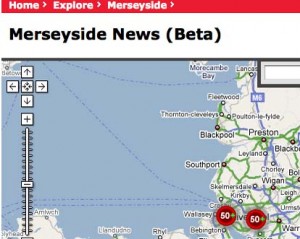Following coverage of last week’s comments by National Union of Journalists (NUJ) chief Jeremy Dear, about his bemusement with the regional press’ opposition to the BBC’s proposals to extend local video offerings online, the general secretary has responded, saying that there’s ‘room for everyone’ in the regional market.
“My point is that the local newspapers campaign is for their own vested interests – they don’t care about ensuring local people have a variety of sources of news, comment and entertainment. They want to be able to capture the market themselves. I fully support the newspapers’ expansion in to online media and I hope they capture a significant part of the audience – but it has to be done through quality content, with enough staff and resources to win ‘eyeballs’ not by stopping the licence fee payer being able to access BBC local services,” he writes in a blog post.
Dear adds that he has replied to a letter from Trinity Mirror’s director of corporate communications about his remarks, but is yet to receive a response:
“I simply asked him the question that if we believe in media plurality and we accept that commercial local TV and radio can exist alongside the BBC what is so different about online?”
Regional newspaper publishers have previously told Journalism.co.uk that ‘enough staff and resources to win “eyeballs”‘ would be a much easier prospect if a £68 million, five-year investment plan was available.
The final decision on the plans is fast approaching – it’s scheduled for February 25 2009 – and perhaps now is the time for the regional press to ask themselves what can be done if their opposition fails.
Is there potential for collaboration with the BBC online, and could this drive further innovation by regional titles online in response to the competition? Or will approval of the scheme lead to a reduction in online investment by the regional media?
